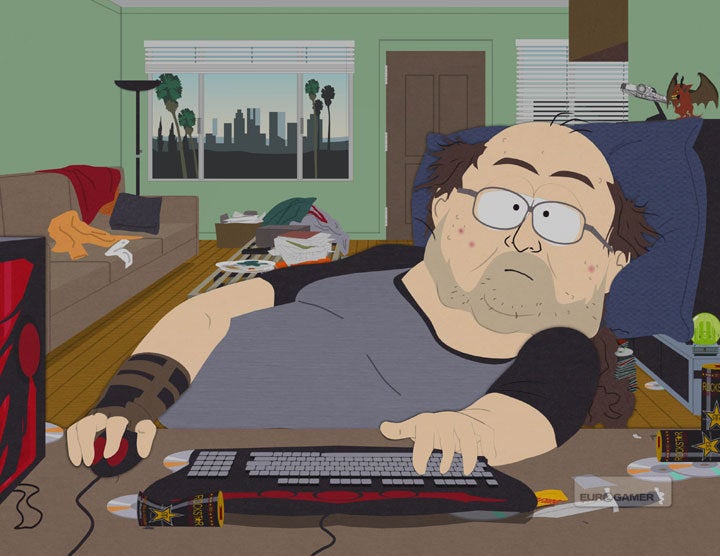Once again,
my slumming on forums around the internet has allowed me to build up a headful
of steam and rant about something.
Today’s discussion centers around the age-old desire to grow up too
fast. We see this with young children
all the time. Qualifiers on age (I’m 6
AND A HALF), attempts to jump to new milestones before they are ready (crossing
the street too young, staying out too late, getting to that coveted “R” rated
movie), dressing/acting older, etc. The
comedy being that, once you reach “of age”, you cling desperately to your
youth, with many people aging without grace and denying their birthdays. But this phenomenon extends into the realm of
training as well, with young trainees RACING to be “just like the old
dudes”…and in doing so co-opting habits, patters, quirks and traits that are
not just ridiculous but actively destroying their opportunity to actually reach
“of age”. Allow me to explain…
Where I
primarily observe this quality is in the realm of “injury”. And I put it into quotes because, really,
these are phantom injuries. There is no
source for them, they cannot be seen by MRI, there’s no diagnosis and, in turn,
no treatment. But despite all of this, I
constantly observe trainees as young as teenagers bemoaning their “bad knees”, “elbow
pain”, “junk shoulder”, etc etc. These
trainees, in turn, have written off a whole HOST of movements that are “no
longer possible” due to their “injuries”.
No more back squats (god I hate writing “back squat”): our “bad back”
will only allow us to do front squats.
Gotta give up all straight bar pressing because of our bad
shoulders. With my elbow pain, I gotta
stick with just machines.
Jesus
people: what did you do in your first 16 years of existing to wear out your
connective tissue so quickly?! Are you a
Soviet era acrobat, recruited from age 1 into a rigorous training program
paired with an unsustainable touring schedule to entertain the nobility? Are you an impoverish Thai child that got
roped into the world of Muay Thai prizefighting, boasting a record with a
combined 367 fights as a means to put food on the table? Are you one of 15 children performing manual
farm labor in pre-industrial era America?
Did you have an illegal job working as a child coal miner? HOW DID YOU GET SO BROKEN?!
These young
trainees are in such a rush to grow up that they’re co-opting the brokenness of
their idols…but forgoing to co-opt the breaking PROCESS. You might see a 1000lb squatter talking about
how they can’t use a straight bar at all in training because their shoulders
are junk and they only save it for the meet: what you AREN’T seeing is the
10,000 squat sessions they did WITH a straight bar beforehand before they
reached that status. Or how the
herniated disc that forces a lifter to rely on the Romanian deadlift for their
hip hinged herniated on the 400th deadlift workout with 800lbs. Folks: for Icarus’ wings to melt, he had to
fly close to the sun FIRST!
You’re not
going to achieve greatness through the mimicry of failure: you achieve
greatness through the pursuit of the HUBRIS that eventually led to the
failure. The reason you’re watching
these great athletes overcome their own injuries in the first place is because
THEY ARE GREAT ATHLETES, and they achieved greatness due to a willingness to
push their bodies WELL beyond the limits, to the point that they encountered
disfigurements and injuries that are unfathomable to an average person. They EARNED the right to be broken, and the
“reward” is the option to compensate with alternatives, work arounds, and
substitutions so that they can continue to push themselves stupidly hard,
because they only know one way to live.
If you watch Ronnie Coleman these days, he will crutch himself to a
machine and STILL give 100% of his soul into a set. David Goggins ran to the point of passing
blood through his urine on MULTIPLE occasions.
THAT’S how these people got so broken…and, before that, so fantastic.

More effort in this one set than some trainees put into a whole life
And,
consequently, you’re not going to get so BROKEN by living a very average
life. Is that a threat or a promise? So very few people are at risk of their reach
ever exceeding their grasp. Do you know
how often I have to explain to someone what it means to eat to recover from
training? These are people who have
literally NEVER “under-recovered”: they have ALWAYS trained so little and
recovered so much that they were in a state of full recovery, to the point that
they cannot wrap their brains around what it feels like when they are NOT
recovered. If you’ve never felt that
feeling, you’re at NO risk of being so broken that you can’t actually do a
proper barbell squat or bench with a straight bar.
Growing up
and growing old really is the perfect lens to understand this phenomenon
from. You need to get some age on you
before you get to be so old. And you can
be old in calendar age and young in training age, and vice versa. Mark Felix got into strongman at 37, which
meant he was a child in the sport at an age where Kevin Nee was well into
retirement. And both were incredible
athletes, simply hitting their primes at different points in their physical
lives. There’s even something to be said
about the value of maturity as it relates to training, and a more “grown up”
trainee may be able to make more intelligent decisions that prolongs their
longevity…but there’s ALSO something to be said about the recklessness of youth
allowing us to push STUPIDLY beyond our limits due to a complete lack of
self-preservation instincts or sense of danger.
But, in either sense: it requires a willingness to GET broken before one
ACTS broken. Before you start babying
your junk knee and garbage shoulders, go out and earn them.


Absolutely agree. It really irks me when I see someone around my age (Early 20s) saying they can't squat due to bad knees. 9/10 times the person saying this is just uncomfortable squatting and does not actually have any problems with their knees. Hell, I know you have suffered lower body injuries and yet your still repping high rep and high weight squats. I mean even I tore my meniscus significantly in wrestling and I am still able to squat just fine. If you have an actually injury then definitely go see a professional but the human body is not as fragile as people think it is.
ReplyDeleteDude, I'm such a fan of you: means a lot you swung on by. And you are living proof of it all. Coming at it with a torn meniscus and low bodyweight and absolutely crushing it. You gotta "earn" that hurt!
DeleteA bit after quarantine I stumbled on your "6 months of eating and training [...]" on reddit. Ever since that day I've been coming to your blog almost every other day, eager for a new post. Two years later, 24kg heavier, and with tons more knowledge than I ever thought I'd have on getting bigger (physically and mentally) I still haven't found a single post that hasn't helped me out.
ReplyDeleteAnother great write-up.
Cheers from Greece!
That's fantastic dude! I really appreciate you coming by and writing that. And you come from a place with a great legacy for strength too!
DeleteThis attitude just makes me laugh. UK strongman Rob Frampton literally had a chunk of his glute blown off with a sawn off shotgun when working on the doors, and he later Deadlifted 400kg, competed for years with that injury. Let alone all the normal wear and tear that comes with the sport.
ReplyDeleteThere are SO many inspirational stories out there about people who just plain wanted it bad enough. It's enough to put things into perspective.
DeleteVerry relatable, years ago in my mid 20s I had "bad" knees, shoulders and wrists. I really didn't like that and tried to figure out what was up. Instead of not limiting myself in training, I came to realize I was simply very weak in those areas. Now I only have an issue with my wrists, which after plenty of scans seems to be a structural thing. And I can work around it easily.
ReplyDeleteHell yeah. Just imagine if we changed the narrative from "bad" to "weak"? Soon the solution presents
DeleteThere are Olympic athletes in their mid - late 30s, some even winning medals in speed / power events. Yet any time discussions on ageing arise online you'll find Sam, a 31 year old accountant with zero wear and tear on his body, talking about how his legs just aren't what they were during his heyday of second team table tennis as a school boy. And Sam's (don't know why I've given the lad a name, but I'll power through) lament will invariably be met with other young men and women chiming in with their own tales of decline, serving to validate their experiences as a normal, inexorable process.
ReplyDeleteUltimately, I think it's down to a chronic lack of GPP - the injuries are likely simply 'under use' injuries, and / or niggles accumulated when engaging in movement patterns and / or intensities that the body isn't prepared for, especially if coupled with notable increases in body weight. For some, that intensity threshold may be met by simply jogging down the street.
Nailed it dude. Inertia is a powerful force, and a restful body will fight to stay that way
Delete